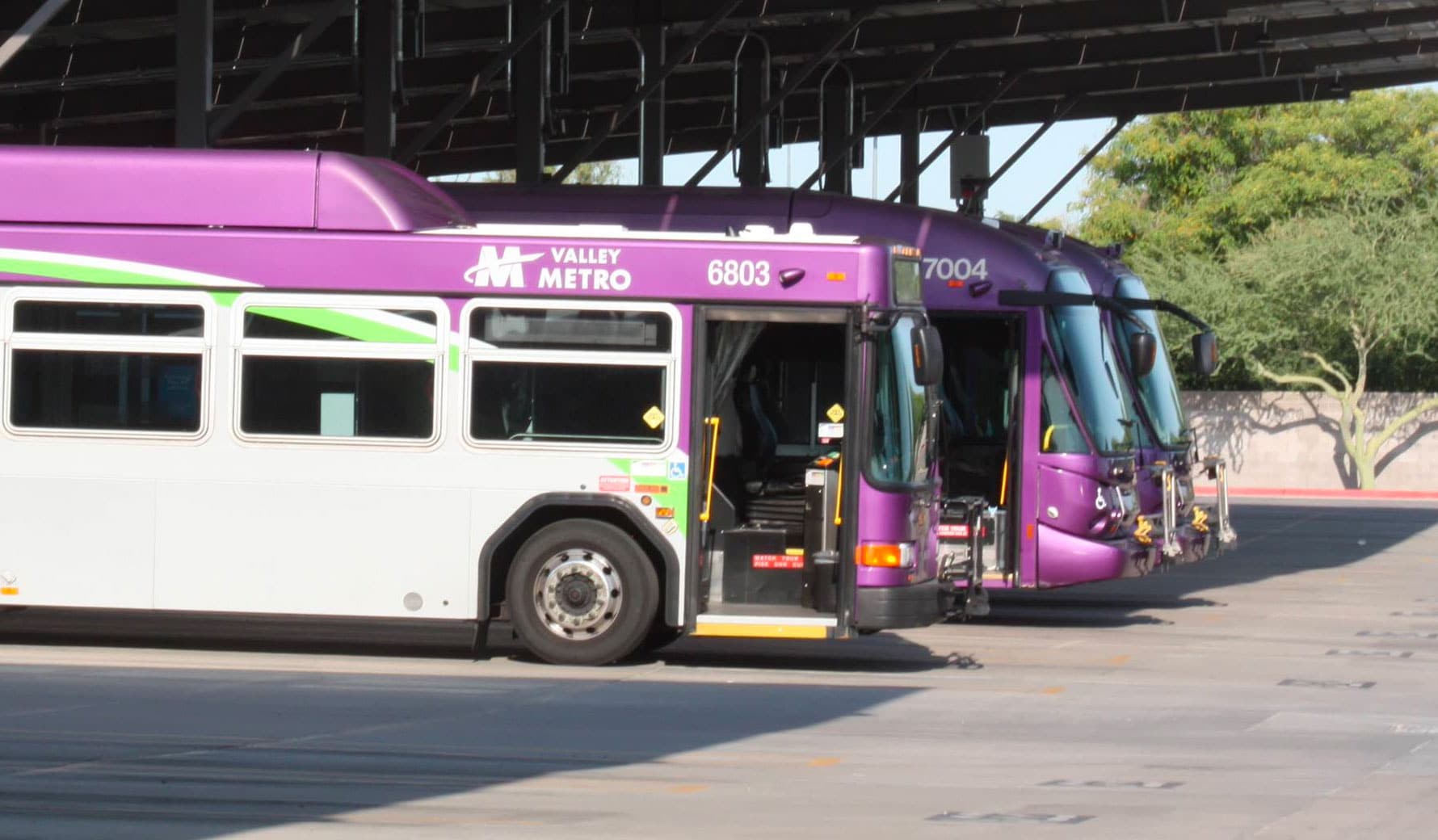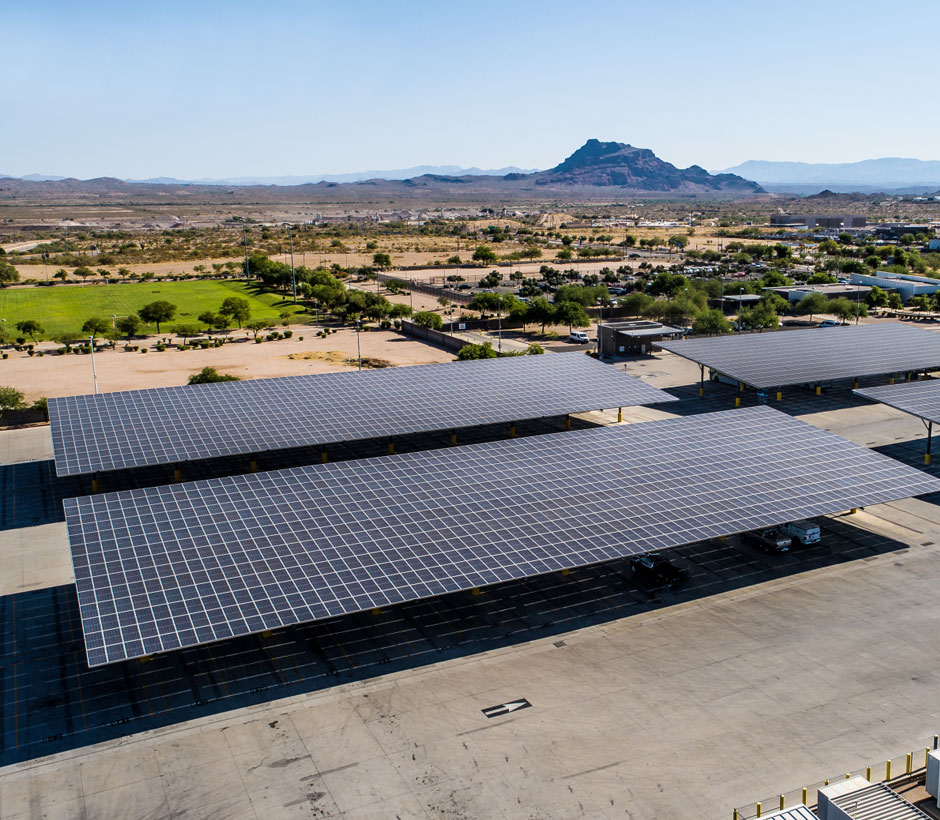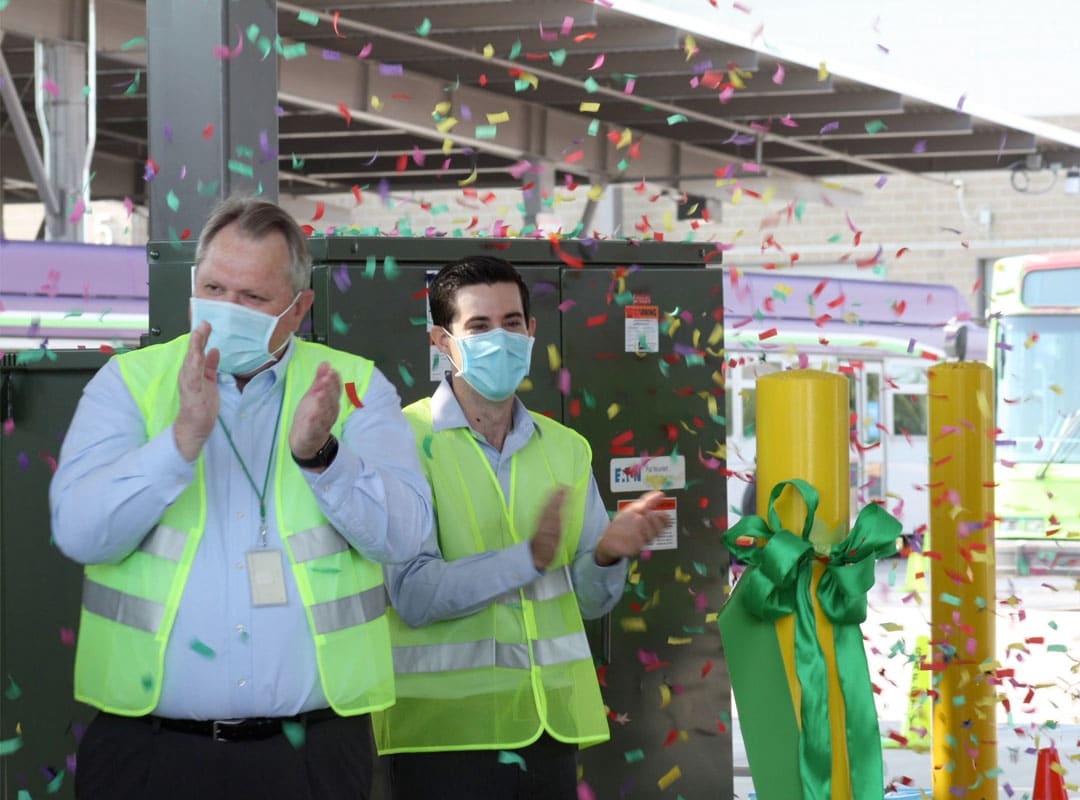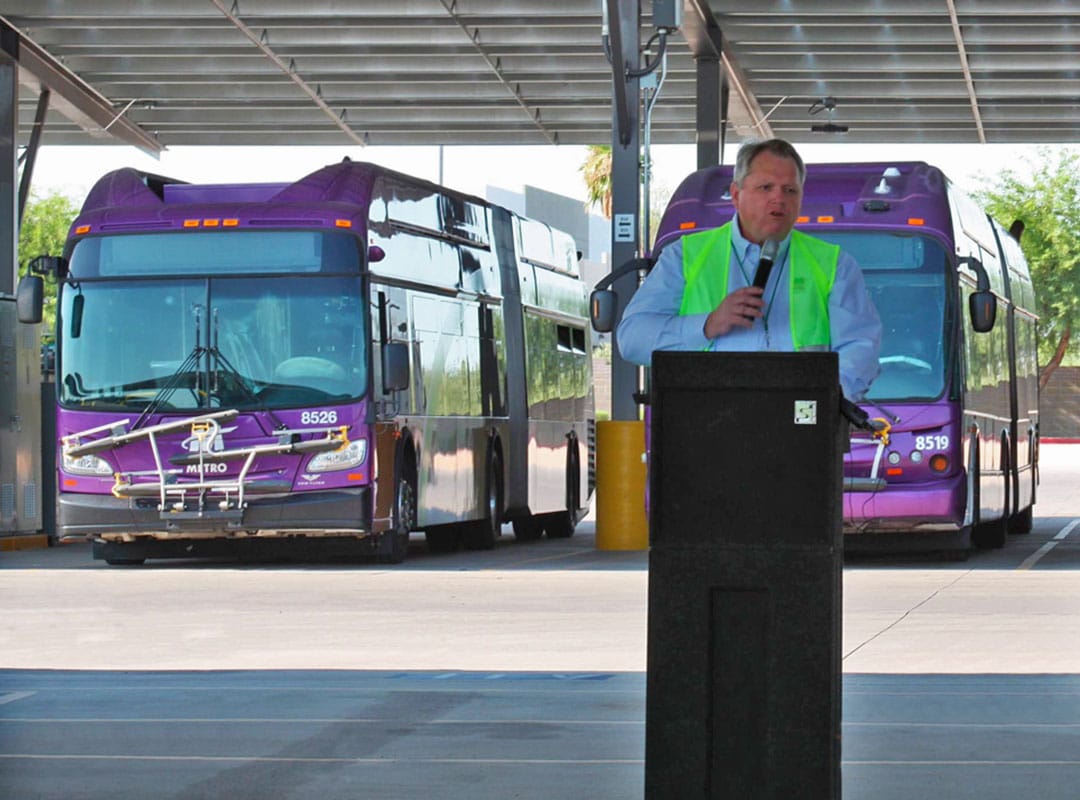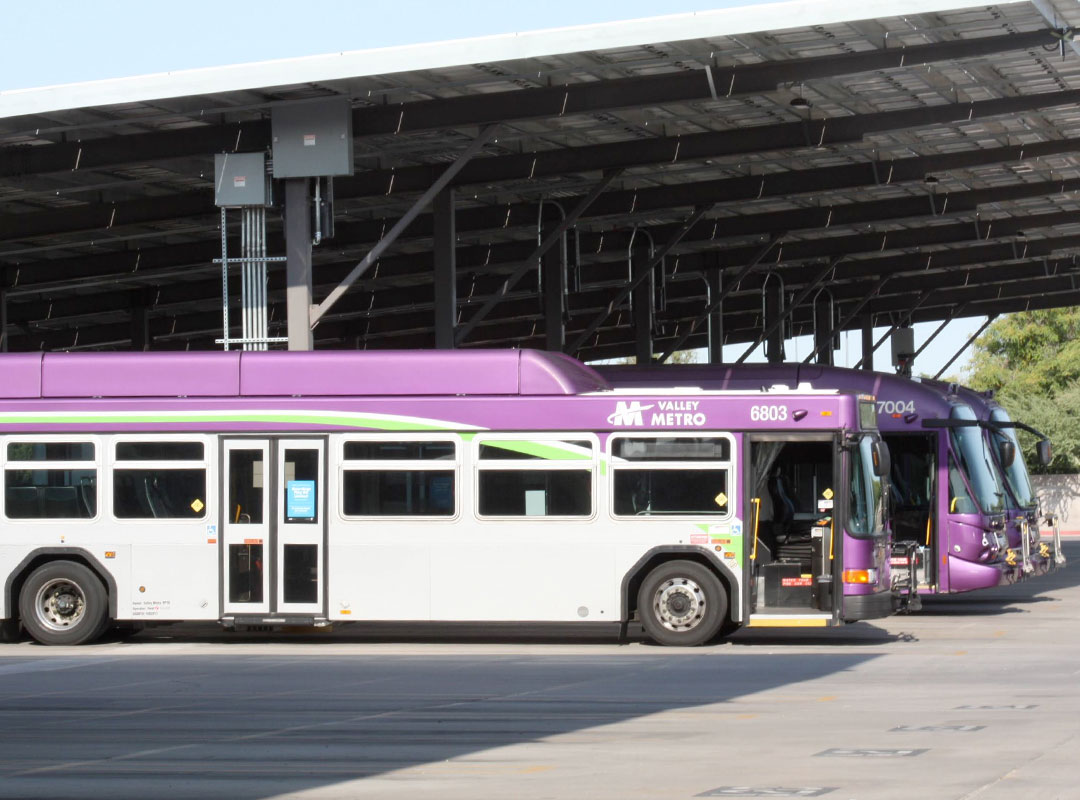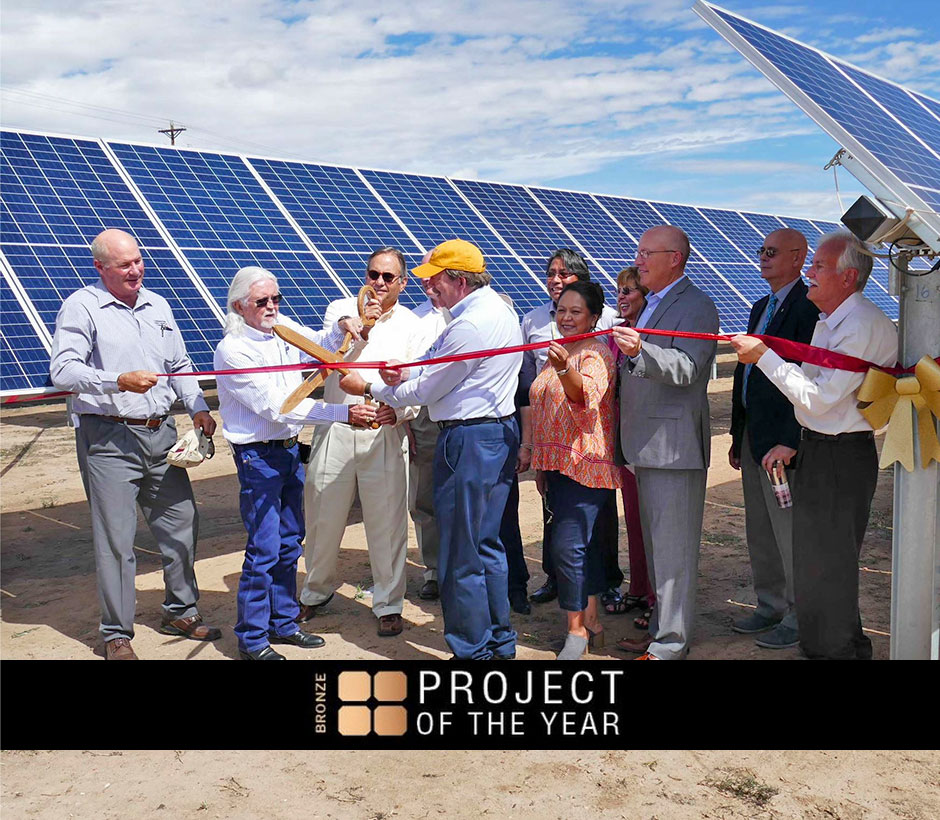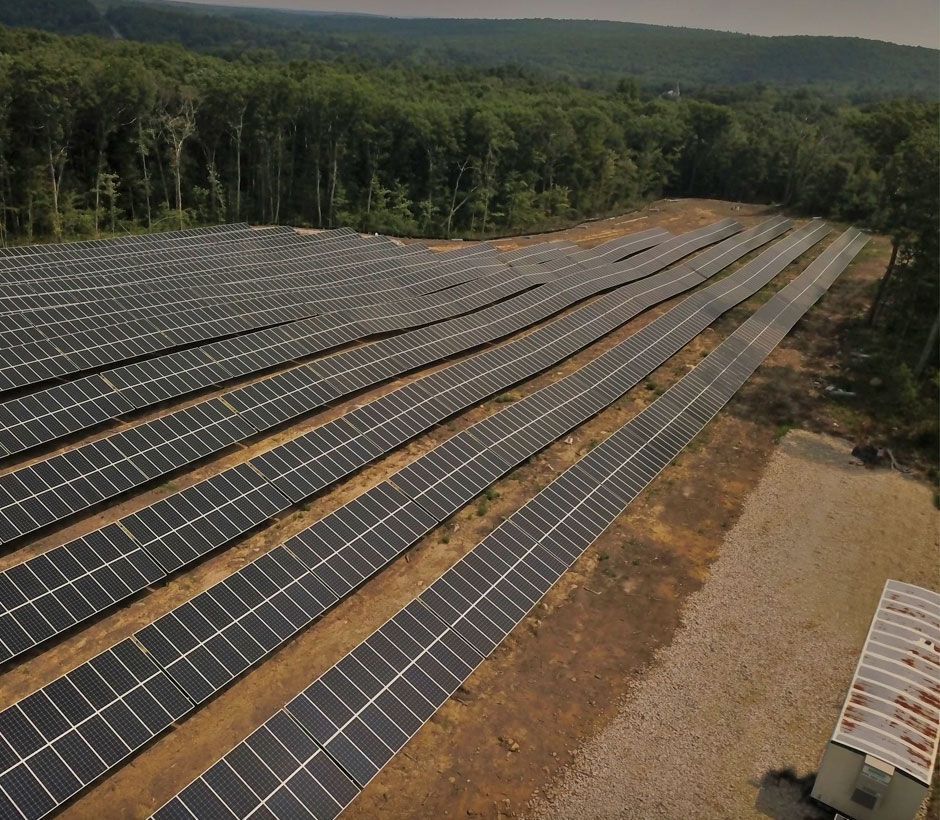Strategic Shade Canopies Reduce Valley Metro’s Annual Energy Costs
In partnership with Standard Solar and Veregy, this project began construction in June 2019, and the panels started producing energy in May 2020.
The project, composed of 3,500 solar panels, completely powers the Valley Metro maintenance facilities in the cities of Mesa and Chandler, Arizona.
Standard Solar’s In-House Financing Delivers for Valley Metro
“We’re grateful for the opportunity to partner with Valley Metro on developing and implementing their path to a more sustainable future,” said John Mitman, Veregy’s Director of Distributed Energy. “This project exemplifies our partner-centric approach where customized solutions provide multi-faceted benefits – in this case a future where electric vehicle infrastructure goals are enabled by both solar and shade.”
“We’re thrilled to put our in-house financing resources behind this important project,” said Jason Feng, Standard Solar’s Director of Channel Sales, Western United States. “We commend Valley Metro and the area’s elected officials for seeking ways to save money while furthering the goal of protecting the environment.”
The panels are expected to produce 2.1 million kilowatt-hours per year, equivalent to the power used by 171 homes in a single year. They are anticipated to save $35,000 a year in energy costs and more than $2 million throughout the term of the solar purchase agreement.
Long-Term Sustainability Benefits Plus Fuel Cost Savings
“The installation of this project demonstrates Valley Metro’s continuing commitment to a sustainable system for riders today and for future generations,” said Mesa Councilmember Francisco Heredia, Valley Metro Board member. “The canopies help buses to quickly cool down allowing more efficient operations and reducing fuel costs.”
The canopies provide a total of 76,000 square feet of shade coverage for buses across four separate structures. With temperatures in the shade as much as 40 degrees lower than in direct sun, buses will not have to spend time idling to cool down before service. Savings are estimated at $67,000 per year in fuel costs due to the new shade structures.

